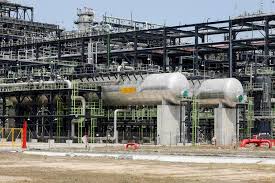Nigeria’s oil and gas sector is undergoing a major transformation, driven by local companies stepping into roles traditionally held by international oil majors.
With a wave of asset divestments by global firms like Shell, ExxonMobil, and Chevron, Nigerian independents are taking centre stage — acquiring fields, investing in new infrastructure, and reviving dormant wells, marking a pivotal shift in the nation’s upstream landscape.
This shift is not just symbolic. It represents a tangible boost to Nigeria’s energy capacity, local content development, and economic independence.
Otakikpo Terminal Ushers in New Era
In a milestone for indigenous operatorship, Green Energy International Limited on Monday commenced loading operations at Nigeria’s first locally developed and operated onshore crude oil terminal — Otakikpo, located in OML 11 near Port Harcourt.
The terminal, which has a throughput capacity of 360,000 barrels per day (bpd), loaded its first cargo through Shell, underscoring the collaboration between departing multinationals and emerging local operators.
More significantly, Otakikpo could unlock over 40 stranded fields in the Niger Delta, enhancing regional production capacity and creating new investment opportunities.
Conoil and Oando Strengthen Indigenous Momentum
Similarly, Conoil Producing Limited recently marked a milestone with the first export cargo of its Obodo crude blend, produced from OML 150 in the Niger Delta. The cargo was lifted by Oando Trading, a subsidiary of Oando Plc, which has also been active in acquiring assets divested by the oil majors.
These developments highlight how Nigerian companies are not only stepping into operational roles but also building full value chains from upstream production to downstream trading.
Massive Investments Fuel Sector Revival
Following its acquisition of Shell’s onshore assets, Renaissance Africa Energy has pledged to invest $15 billion over the next five years. The investment will focus on revitalising oil production, increasing gas output, and developing critical pipeline infrastructure.
The company says its goal is to balance its production portfolio, aiming to double gas output once a strategic domestic pipeline project is completed.
Meanwhile, Seplat Energy, after acquiring ExxonMobil’s shallow-water Nigerian assets, is set to reopen 400 previously shut-in wells. At its Annual General Meeting, Seplat CEO Roger Brown announced that the firm plans to spend up to $320 million in 2025 on drilling, infrastructure, and production optimisation.
“We are focused on reviving existing wells, expanding drilling campaigns, and increasing gas volumes,” said Brown.
Local Firms Now Account for Majority Production
According to data from the Nigerian Upstream Petroleum Regulatory Commission (NUPRC), indigenous operators now contribute more than half of Nigeria’s oil production, up from around 40% before the wave of divestments.
This growth aligns with the government’s plan to increase national oil output by 1 million bpd in 2026, a target that relies heavily on the performance of these local companies.
Security and Infrastructure Remain Key Hurdles
Despite the optimism, challenges persist. Mikolah Judson, an analyst at Control Risks, said many indigenous operators are grappling with high costs related to pipeline vandalism, oil theft, community unrest, and ageing infrastructure.
“These operators face higher costs due to security challenges, community disputes, oil theft and ageing infrastructure. A key aspect of reducing costs will be tackling these structural issues,” Judson said.
Nonetheless, sector observers believe the increasing role of local operators, supported by reforms in the Petroleum Industry Act (PIA) and proactive oversight by the NUPRC, could mark a new dawn for Nigeria’s energy industry.
